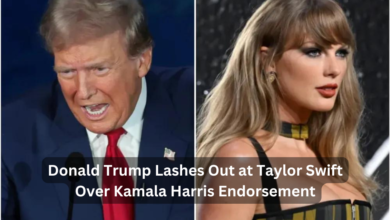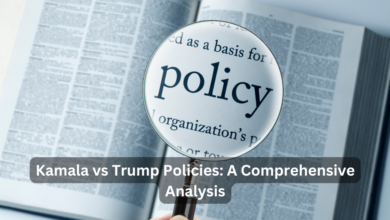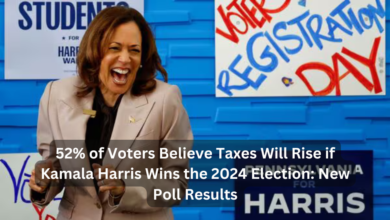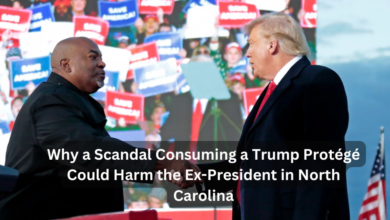Trump Criticizes Fed for ‘Playing Politics’ With Historic Rate Cut Ahead of Election
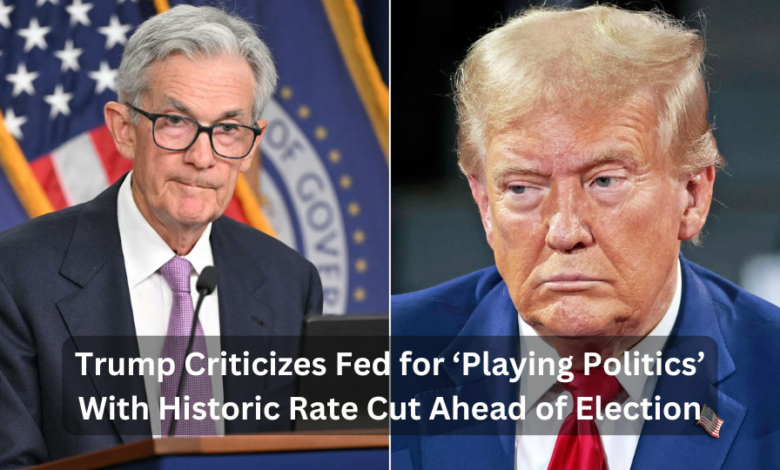
In a dramatic turn of events, the Federal Reserve’s decision to cut interest rates by 0.5 percent, just weeks before the 2024 presidential election, has sparked intense political debate. Former president Donald Trump accused the central bank of “playing politics” with this historic cut, claiming it could be a maneuver to influence the election outcome. The timing of the rate reduction, the largest since 2008, and its potential impact on both the economy and the election, has thrust the Federal Reserve into the center of a political firestorm.
The Federal Reserve’s Historic Rate Cut
On Tuesday, September 18, 2024, the Federal Reserve announced a reduction in its key interest rate by 50 basis points, moving the short-term borrowing rate range from 5.25-5.50 percent to 4.75-5 percent. This action, the largest rate cut since the economic crisis of 2008, comes at a time when inflation has been steadily falling and job growth has slowed.
According to the Fed, the move is designed to steer inflation closer to its target rate of 2 percent while also balancing risks to employment. In its official statement, the Fed expressed confidence that inflation was moving sustainably toward its goal, making this rate cut both economically and politically significant.
Potential Impact of the Rate Cut
Economists generally view interest rate cuts as tools to stimulate borrowing and spending by lowering the cost of credit. In theory, this can ease financial pressure on businesses and consumers, reducing the likelihood of a recession and boosting economic activity. However, this cut, which was widely anticipated by markets, has a broader context—its proximity to the November election and the political tension surrounding it.
For most Americans, this reduction won’t immediately impact monthly mortgage payments, but it could lower credit card bills and encourage home-buying by reducing borrowing costs. Additionally, it may alleviate inflationary pressures, providing some relief from rising costs of living.
Yet, political reactions have been swift, and the decision’s timing has raised eyebrows across the political spectrum.
Trump’s Reaction: Accusations of ‘Playing Politics’
At a campaign stop in New York City, former president Donald Trump responded to the rate cut with characteristic bluntness. Suggesting that the Fed’s move could be politically motivated, Trump remarked, “I guess it shows the economy is very bad to cut it by that much—assuming they’re not just playing politics.”
Trump’s critique hinges on the idea that the interest rate cut could be an attempt to bolster the Biden-Harris administration ahead of the election by signaling economic stability. Trump had repeatedly urged the Fed to maintain interest rates ahead of the election, implying that a reduction would give a political advantage to Vice President Kamala Harris and her re-election campaign.
For Trump and his aides, the fear is that lower borrowing costs will make voters more optimistic about the state of the economy, even if the underlying issues remain. With inflation still a concern, the former president views the rate cut as a potential manipulation designed to influence public perception just before voters head to the polls.
Political Implications of Trump’s Remarks
Trump’s critique of the Federal Reserve is not new. During his presidency, he frequently clashed with Fed Chairman Jerome Powell over interest rate policies, especially when the central bank raised rates to control inflation. Despite Powell being a Trump appointee, the former president has not held back from publicly criticizing him, even suggesting that he would like to have more direct control over the Fed’s decisions.
The rate cut’s timing, coming so close to the election, evokes comparisons to 1992, when the Fed similarly reduced rates in the months before the election. Back then, the move failed to save President George H.W. Bush from electoral defeat. However, with economic conditions and political tensions at an all-time high in 2024, Trump’s accusations of the Fed “playing politics” are likely to resonate with his supporters.
Mixed Reactions From Political Leaders
The rate cut has elicited varied responses from political leaders. Republican House Speaker Mike Johnson offered cautious approval of the move, calling it “welcome news for consumers,” but he also questioned its timing. “Right on the eve of an election? I don’t know. Count me as curious about it,” Johnson said, expressing skepticism about the Fed’s decision.
Meanwhile, President Joe Biden and Vice President Kamala Harris have welcomed the rate cut. Biden described it as an “important moment” for the economy and hinted that he would address the issue in greater detail during an upcoming speech. Harris, in her statement, emphasized that while the cut was “welcome news for Americans who have borne the brunt of high prices,” her focus remained on “the work ahead to keep bringing prices down.”
Republican Nominee JD Vance’s Response
At a campaign stop in Raleigh, North Carolina, Republican vice presidential nominee JD Vance also weighed in on the rate cut. When a reporter noted that the cut could alleviate inflation for many Americans, Vance dismissed the significance of the move, stating, “Half a point is nothing compared with what American families have been dealing with for the last three years.”
Vance’s remarks reflect broader Republican concerns that the rate cut is insufficient to address the economic challenges facing the country. As the election draws closer, the economy remains a central issue for both parties, and the Fed’s actions will likely play a key role in shaping the final weeks of the campaign.
Wall Street’s Reaction: Subdued But Positive
While political leaders continue to debate the implications of the Fed’s decision, Wall Street has reacted with cautious optimism. In the immediate aftermath of the announcement, the Dow Jones Industrial Average surged more than 350 points before paring gains to close at 41,503.10, down just over 103 points, or 0.2 percent.
The S&P 500 and the Nasdaq also experienced similar patterns, with initial gains followed by slight declines by the end of the day. The S&P 500 closed down 0.29 percent at 5,618.26, while the Nasdaq fell 0.31 percent to 17,573.30.
While the markets seemed to have anticipated the rate cut, the relatively subdued response reflects lingering uncertainty about the economy’s future trajectory. Investors are weighing the benefits of cheaper borrowing against concerns about potential political fallout and the long-term sustainability of economic growth.
Dissent Within the Federal Reserve
Not all members of the Federal Reserve’s decision-making body were in agreement on the historic rate cut. Federal Reserve Governor Michelle Bowman, a Trump appointee, was the sole dissenter, advocating for a more modest quarter-point cut. Bowman’s public opposition to the decision marks the first time a Fed governor has disagreed with a rate move since 2005, underscoring the contentious nature of the decision.
Bowman’s dissent signals that within the Fed itself, there is still debate over the best course of action to stabilize the economy and reduce inflation. Her preference for a smaller cut reflects a cautious approach to economic management, favoring more gradual adjustments rather than the bold, half-point reduction enacted by the majority.
Conclusion
The Federal Reserve’s historic rate cut has set the stage for a heated political showdown in the final weeks of the 2024 election. While economists and market analysts debate the economic merits of the decision, its political ramifications are undeniable. Donald Trump has already seized on the move as evidence that the Fed may be trying to influence the election, and both Republicans and Democrats are framing the cut to fit their broader electoral narratives.
As Election Day approaches, the intersection of economic policy and politics will likely dominate the discourse, with the Federal Reserve at the heart of the controversy. Whether the rate cut ultimately helps or hurts the Biden-Harris administration remains to be seen, but its role in the unfolding political drama is already assured.
